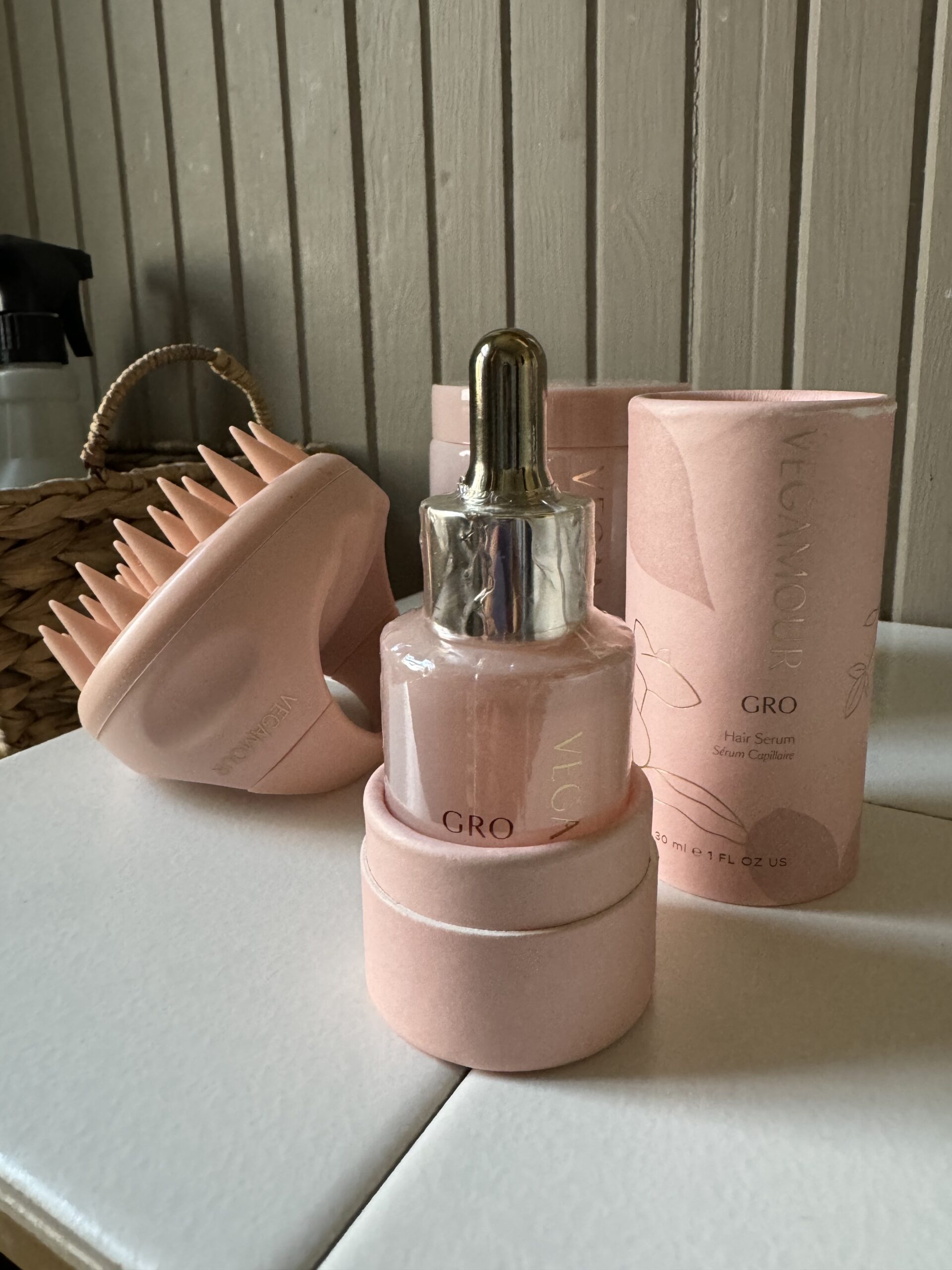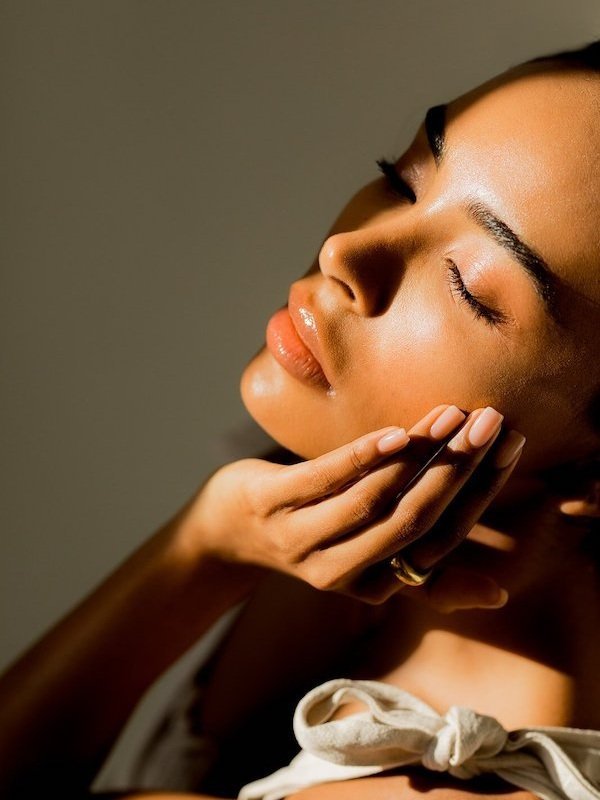
Does Going Vegan Help Clear Your Acne?
As a beauty writer, I’m constantly consuming skincare content on social media for my work (and for pleasure). It’s hard not to want to take the advice of women who post video after video of their glossy, glowing, poreless, 22-year-old skin — and some of these women swear that going vegan was the silver bullet that finally cleared their acne. Big if true!
But if it is true, wouldn’t everyone be vegan? Wouldn’t dermatologists recommend going vegan as a magic elixir among the ranks of benzoyl peroxide and tretinoin? I figured there must be a reason they don’t. So I consulted with a few derms and skin experts to get their take on the question: Does a plant-based diet really affect what your skin looks like, and if so, how?
Read on to explore the complex connection between animal products and breakouts. Let’s find out once and for all if going vegan can actually clear up acne. 🔎
Are animal products clinically linked to acne?
The short answer is no, animal products alone don’t cause acne, but the issue turns out to be a lot more nuanced than that. For some acne-prone people, and in some particular diets, there can be a correlation between acne and the consumption of animal products.
“The most common root causes of acne are food sensitivities, gut dysbiosis (an imbalance of gut bacteria), and blood sugar dysregulation.”
– Corie McInnis, Founder of Revel + Thrive Holistic Wellness, LLC
“Animal products such as meat, poultry, seafood, and eggs don’t inherently cause breakouts,” says Corie McInnis, a nutritional therapy practitioner specializing in clearing adult acne. Though, she continues, there is a connection between some diets and acne. “In my practice, I find the most common root causes of acne are food sensitivities, gut dysbiosis (an imbalance of gut bacteria), and blood sugar dysregulation.”
Let’s take a closer look at some food groups and how they have been linked to acne.
Dairy and starch
The major connection between diet and breakouts might lie in a hormone called IGF-1 (insulin-like growth factor 1). Naturally occurring in our blood, IGF-1 levels, when increased, can trigger acne. High glycemic index foods, like sugar, white bread, white rice, corn, and potatoes, can raise IGF-1 levels. “Elevated IGF-1 levels can cause inflammation, hormonal changes, increased oil production, and development of acne lesions,” says McInnis.
“Some folks might even experience an uptick in acne breakouts after going vegan.”
Notably, digesting dairy can also raise our IGF-1, although results aren’t perfectly consistent. One of the most common food allergens, dairy has been associated positively with acne in some studies. Some folks can digest lactose, the sugar in dairy, just fine. But some can’t, leading to a lactose sensitivity-caused breakout.
Be aware that some folks might even experience an uptick in acne breakouts after going vegan — if they’ve replaced some animal product-containing parts of their diet with processed foods that have more carbs and a higher glycemic index. Lesson: Be mindful when going cold turkey.
Meat and seafood
So that explains acne potentially worsened by dairy and starches — two ingredients, we should mention, that often go hand in hand in many foods. But what about eating meat?
While it’s not been shown to directly cause acne, “hormone residues in commercially raised red meat and dairy might also contribute to acne,” says Dr. Hannah Kopelman, physician and host of the Derm Club podcast. McInnis recommends avoiding conventionally raised meat, poultry, and seafood whenever possible.
Seafood has also been cited as an acne trigger because it’s naturally high in iodine, but there’s no inherent link between iodine consumption and acne. In fact, iodine is a crucial nutrient to support functions like metabolism and brain development.
So the bottom line on what foods can cause acne is pretty simple: High glycemic index foods have a stronger acne correlation, dairy has a weaker one — and hormones residing in your commercial meat consumption may also be a factor.
So what should you eat to clear acne?
If you’re tempted to turn to a diet to clear your skin, let it be a diet rich in whole, unprocessed, low glycemic index foods. This does not necessarily entail going vegan, say the experts I heard from.
“I’ve had patients who reported a noticeable improvement in their acne after switching to a vegan diet,” says Dr. Kopelman. This improvement could be from an elimination of dairy and conventionally farmed meats — but it could be just as strongly tied to whole, anti-inflammatory, unprocessed foods. “A vegan diet, when well-planned,” she says, “is rich in fruits, vegetables, nuts, seeds, and legumes.”
“Omega-3 fatty acids, found in foods like mushrooms, flax seeds, hemp seeds, and certain nuts, can help with inflammatory skin conditions like eczema or acne.”
Dr. Simran Sethi, an internal medicine doctor and founder of Skin by Dr. Simran Sethi also emphasizes the importance of whole foods: “There’s some great progress when my patients begin to introduce whole foods, such as vegetables, low-sugar fruits, and complex carbs (legumes, etc) into their eating regimes.” Dr. Sethi also emphasizes that omega-3 fatty acids, found in foods like mushrooms, flax seeds, hemp seeds, and certain nuts, can help with inflammatory skin conditions like eczema or acne. “Generally, eating foods with higher nutritional value, high water content, and fiber is great for the skin and the body’s digestive system,” says Sethi.
It might be the case that vegans are more likely to have a whole food diet. “Vegans often consume a diet rich in vitamins, antioxidants, and fibers, which are beneficial for overall skin health,” explains Dr. David Li, a board-certified dermatologist with Boston Derm Advocate. “The beneficial effect could also be related to the overall healthier lifestyle choices often associated with veganism, rather than the diet itself.”
“Diet affects everyone differently, and genetics, stress levels, and skincare practices all play a part.”
Dr. Li emphasized that it’s also important to remember that diet is just one piece of the acne puzzle. Diet affects everyone differently, and genetics, stress levels, and skincare practices all play a part, too.
If you’re interested in exploring changes in your diet in response to acne, McInnis recommends working with a functional practitioner to help determine the root causes of your breakouts. Her advice is generally similar to the other experts’ — eat more whole foods and less processed ones — but she also notes that elimination diets that successively target common sensitivities, like dairy, sugar, gluten, or soy, can help someone identify triggers specific to them.
If you’re struggling with acne or any other skin conditions, we still recommend talking to a dermatologist or other healthcare provider before doing pretty much anything else. With their help, you can isolate the factors that are specific to you, and make necessary changes from there. So while there might not be a silver bullet, there are ways of identifying how diet might be affecting your acne, and that’s a great place to start.
Natalie Gale is a Boston-based freelance journalist. When she’s not writing about art, food, or sustainability, you can find her biking to the farmers’ market, baking, sewing, or planning her next Halloween costume. Say hi on Instagram!




